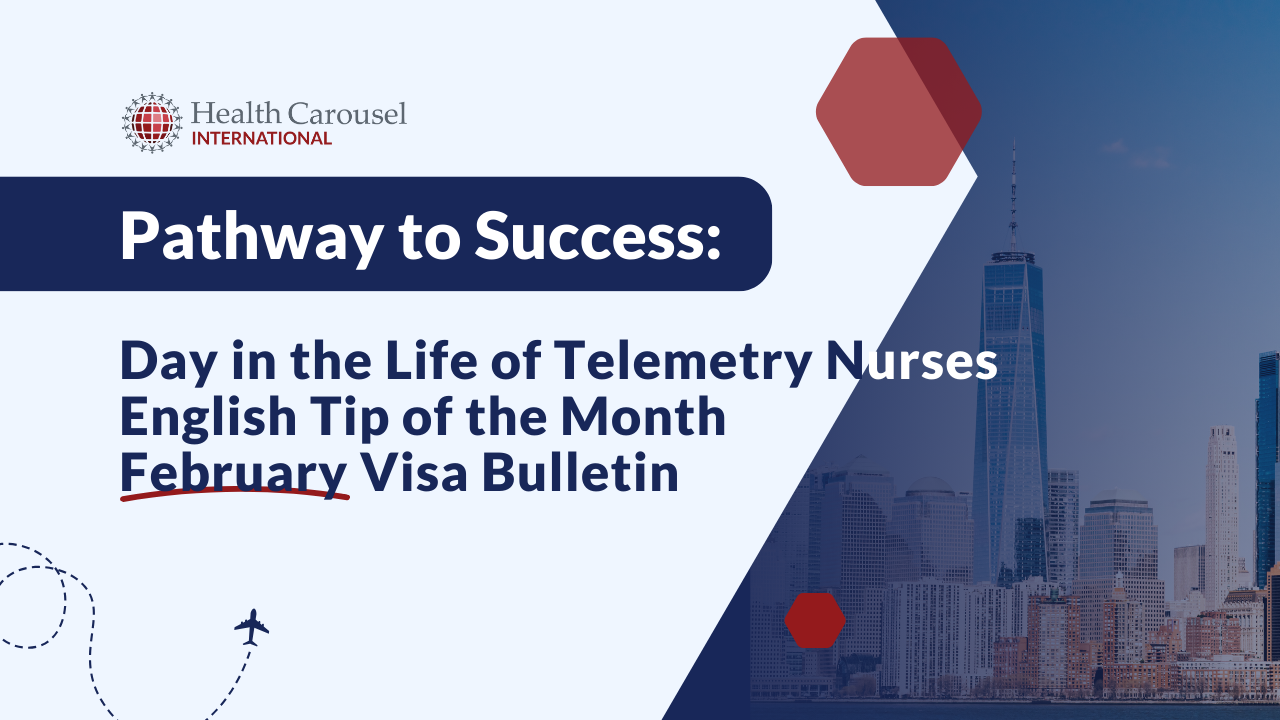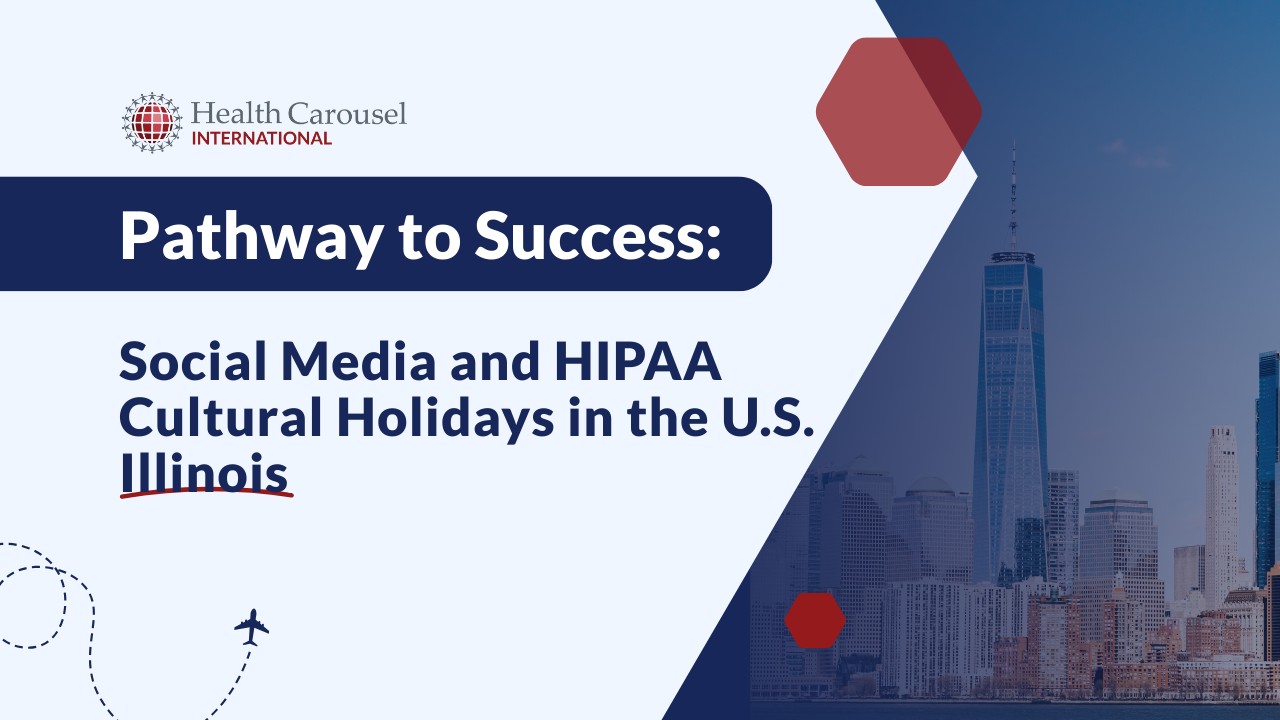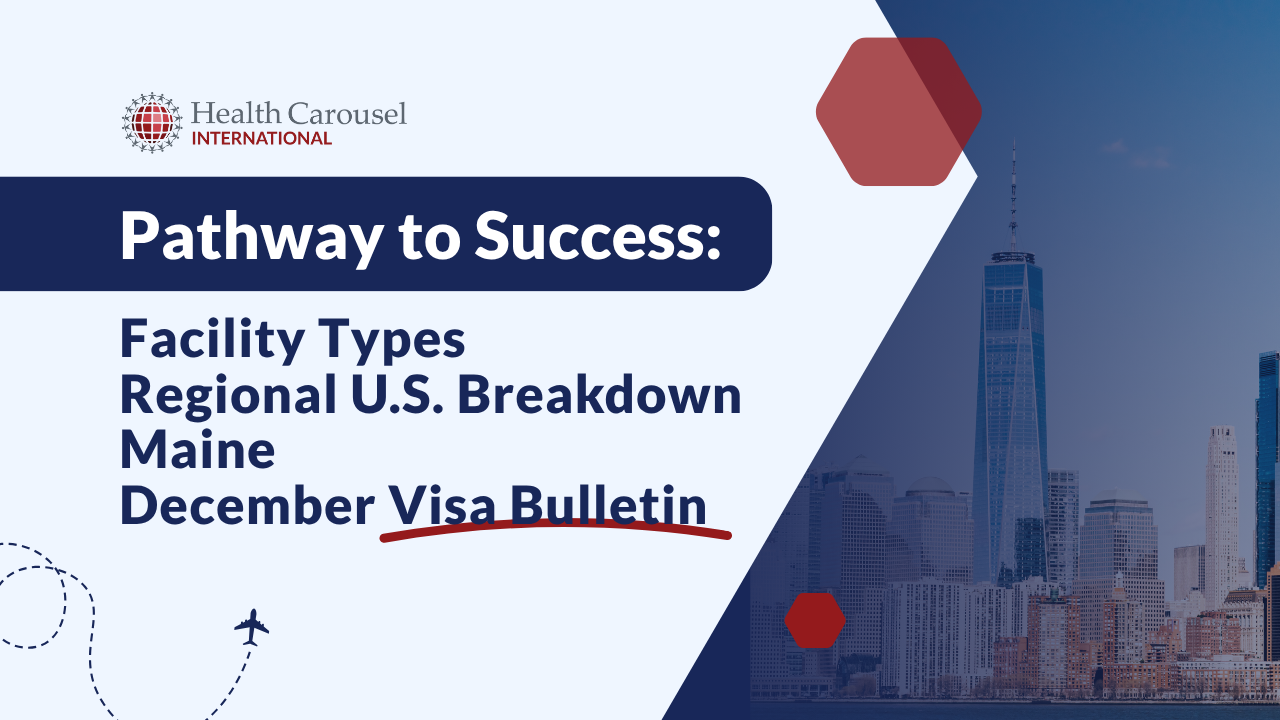3 Things All Canadian RNs Must Know to Practice in the USA
August 27, 2020

There are many reasons why you as a Canadian nurse may want to practice in the USA. Pay, climate, scope of practice, and a greater availability of contract assignments are all common reasons. Fortunately, the U.S. has agreed to offer special visas for citizens of Canada to more easily cross into the U.S. to practice. In this article we'll cover the steps involved in securing a nursing license to practice in the USA AND the U.S. visa type commonly used for registered nurses with Canadian citizenship.
#1: VisaScreen is Not a New Type of Credit Card
The VisaScreen®: Visa Credentials Assessment Service is a comprehensive screening program for health care professionals who are not U.S. citizens and are seeking an occupational visa for the United States. Healthcare professionals need to complete the screening program before they can receive either a permanent or temporary occupational visa, which is covered later on in this article. The VisaScreen® is a program of CGFNS and it includes:
- An assessment of your nursing school education to ensure that it is comparable to that of a U.S. graduate in the same profession. CGFNS has an exclusive partnership with Canadian nursing regulators and the National Nursing Assessment Service (NNAS) to evaluate and validate the credentials of internationally-educated nurses.
- A verification that all of the nursing licenses you've ever held are valid and without restrictions
- An English language proficiency examination, commonly the IELTS for nurses. Although this is not required for nurses educated in Canada with the exception of those educated in the province of Quebec.
- Verification that you have passed NCLEX. Technically other nursing exam options exist such as passing the CGFNS Qualifying Exam®, but while this will get you a visa it won't get you a U.S. nursing license so that path is not recommended.
Once you successfully complete the VisaScreen®, you'll receive an official ICHP Certificate for the VisaScreen®: Visa Credentials Assessment Service, which satisfies the United States Federal screening requirements and enables you to qualify for a U.S. visa. The cost of obtaining a VisaScreen is $540 and you may be able speed up the review process for an extra $500. Other costs may be incurred to secure schools transcripts, mailing services and the like. If you are just beginning this process you may be able to find a healthcare organization who will pay for these expenses as they are incurred or reimburse you once completed
.Plan on the VisaScreen® process taking three to six months. and even longer if you must prepare for and take the IELTS English language exam.
#2: Securing Your First U.S. State License
You will need a nursing license for the U.S. state in which you will practice and each U.S. state has its own board of nursing that controls the requirements and process for licensing. You can quickly find state nursing board websites and their regulations for international nurses through a simple Google search. Canadian nurses beware; sometimes it's easier to get a particular state's license through a process known as endorsement. One example of this is the State of California.
To obtain a California nursing license you must have a U.S. Social Security number or Individual Taxpayer Identification Number (ITIN). As a Canadian citizen you won't be issued an ITIN until you get your U.S. non-immigrant Visa; and you can't get your visa until you have a U.S. nursing license for the state in which you'll practice. See the dilemma? In this scenario it's best to first get a license for a state with international nurse-friendly rules and then apply for a California license thereafter through endorsement after your ITIN and visa have been issued. This means it's really hard to land your first U.S. assignment in some states including California. PassportUSA can help you navigate these U.S. state licensure headaches!
State nursing license application costs vary widely from under $50USD to almost $300USD depending on the state and can take up to three months to process.
#3: TN is Not Just the Abbreviation for Tennessee
In discussions regarding Canadian RNs practicing in the U.S., TN refers to a particular visa type originally created as a result of the North American Free Trade Agreement (NAFTA). NAFTA has now been replaced by the new USMCA (United States - Mexico - Canada Agreement) that went into effect on 7/1/2020, but the TN visa type remains unchanged. The TN non-immigrant visa classification permits qualified Canadian citizens to seek temporary entry into the United States to engage in business activities at a professional level. Among the types of professionals who are eligible to seek admission as TN non-immigrants are accountants, engineers, lawyers, pharmacists, scientists, teachers, and registered nurses. You may be eligible for TN non-immigrant status if you:
- Are a citizen of Canada
- Are an RN
- Have a prearranged full-time or part-time nursing offer with a U.S. healthcare organization
- Have an official ICHP Certificate for the VisaScreen®
- Have a U.S. nursing license to practice in the U.S. State in which you'll be practicing
If you are a Canadian citizen, then you are not required to apply for a TN visa at a U.S. consulate. Your TN visa can be issued at the border crossing provided you have all of your required documentation in order. Upon issuance, you will also be given your Individual Taxpayer Identification Number (ITIN) mentioned above. Plan on paying about $56 in fees. At the U.S. border crossing you will need to present:
1. Valid Canadian Passport
2. Proof of a valid U.S. state or provincial nursing license
3. Proof of your VisaScreen®
4. A letter, on the healthcare organization's letterhead with the following information:
- RN title
- RN role description
- Description of compensation
- Amount of time in the US requested (up to three years for each adjudication)
Canadian Border Patrol (CBP) also recommends that Canadians apply for TN status during regular business hours. In addition, CBP has issued a list of "Optimized Ports" which can be found on the CBP website. Furthermore, when applying at the border, CBP officers will expect to see original documents, not photocopies.
TIP: Your spouse and any unmarried minor children may accompany you as the main applicant. You must provide proof of the family relationship, such as a marriage or birth certificate.
Putting it All Together
VisaScreen®, U.S. state licensure, and TN visa issuance are the three milestones in bringing your nursing skills to the USA. PassportUSA has the expertise, and opportunities, and provides the financial assistance to make your U.S. nursing dreams a reality. We can even sponsor you for an EB-3 immigrant visa (Green Card), eventually enabling you to live and practice as an RN in the U.S. permanently. Surprisingly, we provide the Green Card option free of charge to nurses accepting a year or longer assignment.

Related Articles

Nursing in the USA
What It’s Like to Be a Telemetry Nurse in the US and Visa Updates: January 2026 Broadcast Recap
January 29, 2026
Read More

Nursing in the USA
December 2025 Broadcast Recap: US Holidays, Social Media Tips & Life in Illinois
December 18, 2025
Read More

Nursing in the USA
What Nurses Need to Know: November 2025 Broadcast Highlights & Visa Bulletin
November 25, 2025
Read More
Start Your US Nursing Career
Turn your dreams into reality by taking the first step today. Apply to the PassportUSA program to connect with a recruiter.
.webp)
.webp)